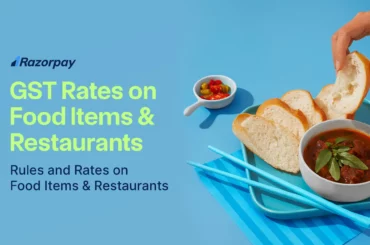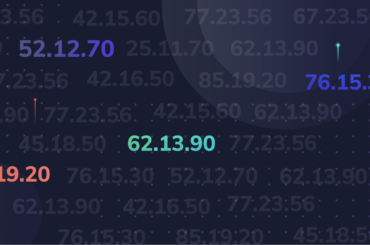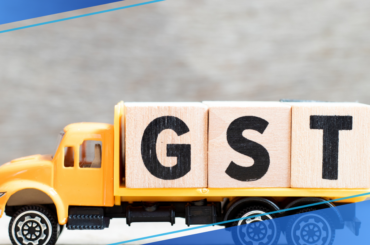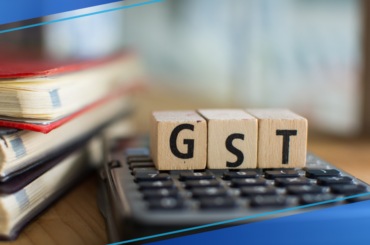The introduction of the Goods and Services Tax (GST) in India marked a notable transformation in the country’s tax landscape, which aims to rectify prevalent flaws in the previous tax system. Many indirect taxes, such as VAT, service tax, and excise duty were replaced by GST in the case of eligible goods and services.
The GST framework aimed to increase transparency between the government and taxpayers with the introduction of the e-way bill. It optimised and digitalised the transportation process for goods while guaranteeing transparency across the supply chain. It tackles historical transparency issues by offering real-time insights into the flow of goods and enhances tax administration and compliance.
Table of Contents
What is the List of Items Exempted from E-Way Bill?
The e-way bill exemption list provides clarity regarding the items exempted from the e-way bill requirement, thereby streamlining the logistics and enhancing compliance requirements.
|
S.No. |
Chapter / Heading / Sub-Heading / Tariff Item |
Description of Goods |
|
1 |
0101 |
Live asses, mules, and hinnies |
|
2 |
0102 |
Live bovine animals |
|
3 |
0103 |
Live swine |
|
4 |
0104 |
Live sheep and goats |
|
5 |
0105 |
Live poultry, including chickens, ducks, geese, turkeys, and guinea fowl |
|
6 |
0106 |
Live mammals, birds, insect |
|
7 |
0201 |
Meat of bovine animals, fresh and chilled. |
|
8 |
0202 |
Meat of bovine animals frozen or in unit container |
|
9 |
0203 |
The meat of swine, fresh, chilled, or frozen, or in a unit container |
|
10 |
0204 |
The meat of sheep or goats, fresh, chilled, or frozen, or in a unit container |
|
11 |
0205 |
Meat of horses, asses, mules or hinnies, fresh, chilled or frozen or in unit container |
|
12 |
0206 |
Fresh, chilled, or frozen edible offal from various animals in unit containers. |
|
13 |
0207 |
Meat and edible offal, of the poultry of heading 0105, fresh, chilled or frozen, or in unit container |
|
14 |
0208 |
Other meat and edible meat offal, fresh, chilled or frozen, or in unit container |
|
15 |
0209 |
Fresh, chilled, or frozen pig fat, devoid of lean meat and poultry fat, whether rendered or in a unit container |
|
16 |
0209 |
Pig fat, free of lean meat, and poultry fat, not rendered or otherwise extracted, salted, in brine, dried or smoked |
|
17 |
0210 |
Meat and edible meat offal, salted, in brine, dried or smoked; edible flours and meals of meat or meat offal, other than put up in unit
|
|
18 |
3 |
Fish seeds, prawn/shrimp seeds, processed or frozen [except those under Chapter 3, 2.5% tax]. |
|
19 |
0301 |
Live fish |
|
20 |
0302 |
Fish, fresh or chilled, excluding fish fillets and other fish meat of heading 0304 |
|
21 |
0304 |
Fish fillets and other fish meat (whether or not minced), fresh or chilled. |
|
22 |
0306 |
Fresh or chilled crustaceans, whether shelled or not, are cooked by steaming or boiling in water. |
|
23 |
0307 |
Fresh or chilled molluscs and aquatic invertebrates, excluding crustaceans, whether shelled or not. |
|
24 |
0308 |
Aquatic invertebrates other than crustaceans and molluscs, live, fresh or chilled. |
|
25 |
0401 |
Fresh and pasteurised milk, including cream, not concentrated or with added sugar, excluding UHT milk |
|
26 |
0403 |
Curd; Lassi; Buttermilk |
|
27 |
0406 |
Chena or paneer, other than put up in unit containers and bearing a registered brand name; |
|
28 |
0407 |
Birds’ eggs, in shell, fresh, preserved, or cooked |
|
29 |
0409 |
Natural honey, other than put up in the unit container and bearing a registered brand name |
|
30 |
0501 |
Human hair, unworked, whether or not washed or scoured; waste of human hair |
|
31 |
0506 |
Bones, horn-cores, defatted, treated with acid or gelatinized, and their powder and waste. |
|
32 |
0507 90 |
All goods i.e. Hoof meal; horn meal; hooves, claws, nails and beaks; antlers; etc. |
|
33 |
0511 |
Semen including frozen semen |
|
34 |
6 |
Live trees and other plants; bulbs, roots, and the like; cut flowers and ornamental foliage |
|
35 |
0701 |
Potatoes, fresh or chilled. |
|
36 |
0702 |
Tomatoes, fresh or chilled. |
|
37 |
0703 |
Onions, shallots, garlic, leeks, and other alliaceous vegetables, fresh or chilled. |
|
38 |
0704 |
Cabbages, cauliflowers, kohlrabi, kale, and similar edible brassicas, fresh or chilled. |
|
39 |
0705 |
Lettuce (Lactuca sativa) and chicory (Cichorium spp.), fresh or chilled. |
|
40 |
0706 |
Carrots, turnips, salad beetroot, salsify, celeriac, radishes, and similar edible roots, fresh or chilled. |
|
41 |
0707 |
Cucumbers and gherkins, fresh or chilled. |
|
42 |
0708 |
Leguminous vegetables, shelled or unshelled, fresh or chilled. |
|
43 |
0709 |
Other vegetables, fresh or chilled |
|
44 |
0712 |
Dried vegetables, whole, cut, sliced, broken, or in powder, but not further prepared. |
|
45 |
0713 |
Dried leguminous vegetables, shelled, whether or not skinned or split. |
|
46 |
0714 |
Manioc, arrowroot, salep, Jerusalem artichokes, sweet potatoes and similar roots and tubers with high starch or inulin content, fresh or chilled; sago pith. |
|
47 |
0801 |
Coconuts, fresh or dried, whether or not shelled or peeled |
|
48 |
0801 |
Brazil nuts, fresh, whether or not shelled or peeled |
|
49 |
0802 |
Fresh nuts like almonds, hazelnuts, walnuts, chestnuts, pistachios, macadamia nuts, kola nuts, and areca nuts, whether shelled or unshelled. |
|
50 |
0803 |
Bananas, including plantains, fresh or dried |
|
51 |
0804 |
Dates, figs, pineapples, avocados, guavas, mangoes, and mangosteens, fresh. |
|
52 |
0805 |
Fresh citrus fruits: Oranges, mandarins, clementines, grapefruit, lemons, and limes. |
|
53 |
0806 |
Grapes, fresh |
|
54 |
0807 |
Melons (including watermelons) and papaws (papayas), are fresh. |
|
55 |
0808 |
Apples, pears, and quinces, fresh. |
|
56 |
0809 |
Apricots, cherries, peaches (including nectarines), plums and sloes, fresh. |
|
57 |
0810 |
Other fruits such as strawberries, raspberries, blackberries, mulberries and loganberries, black, white, or red currants and gooseberries, cranberries, bilberries and other fruits of the genus Vaccinium, Kiwi fruit, Durians, Persimmons, Pomegranates, Tamarind, Sapota (chico), Custard-apple (ata), Bore, Lichi, fresh. |
|
58 |
0814 |
Peel of citrus fruit or melons (including watermelons), fresh. |
|
59 |
9 |
All goods of seed quality |
|
60 |
0901 |
Coffee beans, not roasted |
|
61 |
0902 |
Unprocessed green leaves of tea |
|
62 |
0909 |
Seeds of anise, badian, fennel, coriander, cumin or caraway; juniper berries [of seed quality] |
|
63 |
0910 11 10 |
Fresh ginger, other than in processed form |
|
64 |
0910 30 10 |
Fresh turmeric, other than in processed form |
|
65 |
1001 |
Wheat and meslin excluding branded unit containers. |
|
66 |
1002 |
Rye excluding branded unit containers. |
|
67 |
1003 |
Barley, excluding branded unit containers. |
|
68 |
1004 |
Oats excluding branded unit containers. |
|
69 |
1005 |
Maize (corn)excluding branded unit containers. |
|
70 |
1006 |
Rice excluding branded unit containers. |
|
71 |
1007 |
Grain sorghum excluding branded unit containers. |
|
72 |
1008 |
Buckwheat, millet, and canary seed; other cereals such as Jawar, Bajra, Ragi]excluding branded unit containers. |
|
73 |
1101 |
Wheat or meslin flour excluding branded unit containers.. |
|
74 |
1102 |
Cereal flours other than wheat or meslin, [maize (corn) flour, Rye flour, etc.]excluding branded unit containers. |
|
75 |
1103 |
Cereal groats, meal, and pellets excluding branded unit containers. |
|
76 |
1104 |
Cereal grains hulled |
|
77 |
1105 |
Flour of potatoes excluding branded unit containers. |
|
78 |
1106 |
Excluding branded unit containers, it refers to flour made from dried leguminous vegetables (pulses), sago, roots or tubers, or products of Chapter 8 like tamarind, singoda, mango flour, etc., but not including guar meal or guar gum refined split.
|
|
79 |
12 |
All goods of seed quality |
|
80 |
1201 |
Soya beans, whether or not broken, of seed quality. |
|
81 |
1202 |
Ground-nuts, not roasted or otherwise cooked, whether or not shelled or broken, of seed quality. |
|
82 |
1204 |
Linseed, whether or not broken, of seed quality |
|
83 |
1205 |
Rape or colza seeds, whether or not broken, of seed quality. |
|
84 |
1206 |
Sunflower seeds, whether or not broken, are of seed quality. |
|
85 |
1207 |
Various oil seeds and oleaginous fruits, including palm nuts, cotton seeds, castor oil seeds, sesame seeds, mustard seeds, and more, whether whole or broken, are classified as seed quality. |
|
86 |
1209 |
Seeds, fruit, and spores, of a kind used for sowing. |
|
87 |
1210 |
Hop cones, fresh. |
|
88 |
1211 |
Plants and plant parts are primarily used in perfumery, pharmacy, or as insecticides, fungicides, etc., whether fresh or chilled. |
|
89 |
1212 |
Locust beans, seaweeds, and other algae, sugar beet, and sugar cane, fresh or chilled. |
|
90 |
1213 |
Cereal straw and husks, unprepared, whether or not chopped, ground, pressed or in the form of pellets |
|
91 |
1214 |
Swedes, mangolds, fodder roots, hay, alfalfa, clover, sainfoin, forage kale, lupines, vetches, and similar forage products, whether in pellet form or not. |
|
92 |
1301 |
Lac and Shellac |
|
93 |
1404 90 40 |
Betel leaves |
|
94 |
1701 or 1702 |
Jaggery of all types including Cane Jaggery (gur) and Palmyra Jaggery |
|
95 |
1904 |
Puffed rice (Muri), flattened rice (Chira), parched rice (Khoi), and rice coated with sugar or gur (Murki). |
|
96 |
1905 |
Pappad |
|
97 |
1905 |
Bread (branded or otherwise), except pizza bread |
|
98 |
2201 |
Water [other than aerated, mineral, purified, distilled, medicinal, ionic, battery, de-mineralized, and water sold in sealed container] |
|
99 |
2201 |
Non-alcoholic Toddy, Neera including date and palm neera |
|
100 |
2202 90 90 |
Tender coconut water other than put up in the unit container and bearing a registered brand name |
|
101 |
2302, 2304, 2305, 2306, 2308, 2309 |
Aquatic feed including shrimp feed and prawn feed, poultry feed and cattle feed, including grass, hay and straw, supplement andhusk of pulses, concentrates and additives, wheat bran, and de-oiled cake |
|
102 |
2501 |
Salt, all types |
|
103 |
2835 |
Dicalcium phosphate (DCP) of animal feed grade conforming to IS specification No.5470: 2002 |
|
104 |
3002 |
Human Blood and its components |
|
105 |
3006 |
All types of contraceptives |
|
106 |
3101 |
All goods and organic manure [other than put up in unit containers and bearing a registered brand name] |
|
107 |
3304 |
Kajal [other than kajal pencil sticks], Kumkum, Bindi, Sindur, Alta |
|
108 |
3825 |
Municipal waste, sewage sludge, clinical waste |
|
109 |
3926 |
Plastic bangles |
|
110 |
4014 |
Condoms and contraceptive |
|
111 |
4401 |
Firewood or fuel wood |
|
112 |
4402 |
Wood charcoal, with or without agglomeration. |
|
113 |
4802 / 4907 |
Government-issued stamp papers and court fee stamps, sold by authorised treasuries or vendors. |
|
114 |
4817 / 4907 |
Postal items, like envelopes, Post card, etc., sold by the Government |
|
115 |
48 / 4907 |
Rupee notes when sold to the Reserve Bank of India |
|
116 |
4907 |
Cheques, lost or in book form |
|
117 |
4901 |
Printed books, including Braille books |
|
118 |
4902 |
Newspapers, journals, and periodicals, with or without illustrations or ads. |
|
119 |
4903 |
Children’s picture, drawing, or colouring books |
|
120 |
4905 |
Printed maps, and charts, including atlases, topographical plans, and globes. |
|
121 |
5001 |
Silkworm laying, cocoon |
|
122 |
5002 |
Raw silk |
|
123 |
5003 |
Silk waste |
|
124 |
5101 |
Wool, not carded or combed |
|
125 |
5102 |
Fine or coarse animal hair, not carded or combed |
|
126 |
5103 |
Waste of wool or of fine or coarse animal hair |
|
127 |
52 |
Gandhi Topi |
|
128 |
52 |
Khadi yarn |
|
129 |
5303 |
Jute fibres, raw or processed but not spun |
|
130 |
5305 |
Coconut, coir fibre |
|
131 |
63 |
Indian National Flag |
|
132 |
6703 |
Processed human hair. |
|
133 |
6912 00 40 |
Earthen pot and clay lamps |
|
134 |
7018 |
Glass bangles (except those made from precious metals) |
|
135 |
8201 |
Manually operated agricultural tools: spades, shovels, hoes, axes, secateurs, scythes, sickles, hedge shears, etc., used in agriculture, horticulture, or forestry. |
|
136 |
8445 |
Amber charkha |
|
137 |
8446 |
Handloom [weaving machinery] |
|
138 |
8802 60 00 |
Spacecraft, including satellites, and launch vehicles. |
|
139 |
8803 |
Parts of goods of heading 8801 |
|
140 |
9021 |
Hearing aids |
|
141 |
92 |
Indigenous handmade musical instruments |
|
142 |
9603 |
Muddhas made of sarkanda and phool bahari jhadoo |
|
143 |
9609 |
Slate pencils and chalk sticks |
|
144 |
9610 00 00 |
Slates |
|
145 |
9803 |
Passenger baggage |
|
146 |
Any Chapter |
|
|
147 |
|
LPG for household and NDEC supply, exempted. |
|
148 |
|
Kerosene oil sold under PDS |
|
149 |
|
Postal baggage by the Department of Posts. |
|
150 |
|
Natural or cultured pearls and precious or semi-precious stones; precious metals and metals clad with precious metal (Chapter 71) |
|
151 |
|
Chapter 71: Jewellery and Silverware |
|
152 |
|
Currency |
|
153 |
|
Used personal and household effects |
|
154 |
|
Coral, unworked (0508) and worked coral (9601); |
Documents to Carry in Case E-Way Bill is Not Required
Controlling tax evasion and tracking the flow of goods within or across borders are made possible in large part by the e-way bill. The transporter must make sure that all needed documentation is in order during the transport of goods in cases where an e-way bill is not required.
Let us understand how the e-way bill helps determine the revenue share for states in the movement of goods and acts as a tax evasion tool with the following example:
If raw materials are carried from Karnataka to Tamil Nadu, where they are processed into finished goods and sold, the income should be paid to Tamil Nadu since it is the consumer state.
However, if 50% of the finished items are transferred to another state, such as Kerala, and then sold there, Kerala receives the revenue share. By creating a paper trail for the transfer of goods, the e-way bill serves as a tool to avoid tax evasion in this situation.
If the carrier is discovered to be transporting goods without a legitimate e-way bill, suspicion of tax evasion arises. Cross-referencing the e-way bill data with sales invoices and other documents will help ensure that the products aren’t being diverted for unreported sales.
Let’s understand how to generate e-way bills. An e-way bill is generated online by providing crucial data, such as the type of goods, HSN code, taxable value, quantity, transporter details, recipient details and vehicle number. This detailed information guarantees that the products being carried are documented in a clear and trackable manner.
Taxpayers and transporters are legally required to prepare an e-way bill if covered under mandatory provisions. If not covered, they should carry a copy of a tax invoice or valid documentation, in accordance with GST invoicing regulations.
Different Types of Transactions That Are Exempt From the E-Way Bill
1) Value-Based Exemption:
E-way bills become optional for products valued less than ₹50,000, except in cases where the e-way bill provisions are mandatory, such as movement of handicraft goods, interstate job work, etc.
2) Exemptions Based on Conveyance:
Horse carts, manual carts, and other non-motorised conveyances do not need e-way bills.
3) Exemptions Based on Transportation Route:
GST e-way bill registration is not needed for the transportation of goods from ports, airports, and air cargo complexes to inland container depots (ICDs) or container freight stations (CFS), and vice versa, for clearance by Customs authorities.
4) Customs Supervision and Sealed Transport:
When the goods being transported are transit cargo from or to Nepal / Bhutan, sealed or under customs control, they are exempt from e-way bill requirements.
5) Local Transportation Exemptions:
If goods have been transported under a Delivery Challan (DC) to a weighbridge within 20 km, then there is an e-way bill exemption on such local transportation.
6) Government and Defence Transactions:
Exemptions apply to goods transported by rail on behalf of government or local authorities, as well as goods transported to or from the Ministry of Defence.
7) Compliance Reminder:
Taxpayers falling under exemptions are free from e-way bill compliance, but they still need to make sure bills of supply and invoices adhere to the regulations applied.
Note: If an e-way bill is created but no items are moved, you can cancel GST e-way bills within 24 hours. However, the system will not let the consignor cancel if it is not done within 24 hours.
Related Read: E-Way Bill Validity Explained
Conclusion
The exemptions provided for the GST e-way bill facilitate effective goods transportation and streamline the compliance process in accordance with GST regulations. It reduces the administrative burden on businesses and ensures efficient movement of goods within or across the borders.
Frequently Asked Questions (FAQs):
1. Is an e-way bill required for all goods transported in India?
No, not all goods transported in India mandate an e-way bill. It is necessary for the transportation of goods valued at more than ₹50,000.
2. How do I determine if my goods fall under the exempted category for e-way bills?
To determine if goods are exempt from e-way bill requirements, check the criteria outlined by GST regulations. Verify GST online to see if the products qualify for exemption. Also, ensure that exempted transactions adhere to the authorised documentation.
3. How can I stay updated on the list of exempted goods for e-way bills?
Stay informed by reading our e-way bill-exempt goods list and often visiting the official GST websites and notifications. To receive timely updates, sign up for tax authorities’ newsletters or alerts. To make sure you are complying with the most recent rules and exemptions, you should also seek advice from tax experts.
4. Are there regional variations in the exemption criteria for e-way bills?
Yes, because different states have different laws and regulations, there are regional differences in the e-way bill exemption criterion. In India, each state is free to set its own requirements for the generation of e-way bills.
5. What happens if the value of exempted goods exceeds the threshold limit?
An e-way bill is not required for the transportation of solely exempted goods regardless of the value.




